Danish lender Sydbank A/S has come under scrutiny from the Financial Supervisory Authority (FSA) of Denmark, which has mandated the bank to enhance its liquidity bookkeeping practices. This directive comes amid concerns regarding the bank’s internal frameworks for managing liquidity and funding risks, which the FSA found lacking in thoroughness and documentation.
Key Takeaways
- Sydbank has been ordered to improve its liquidity management practices.
- The FSA criticized the bank for not continuously assessing its internal frameworks.
- Documentation of liquidity management processes was found to be insufficient.
Background on Sydbank
Sydbank A/S is one of Denmark’s prominent financial institutions, providing a range of banking services to both personal and corporate clients. Established in 1967, the bank has grown to become a significant player in the Danish banking sector, with a focus on customer service and financial stability.
Regulatory Findings
The FSA’s findings highlighted several critical areas where Sydbank’s practices fell short:
- Lack of Continuous Assessment: The bank has not been actively and continuously evaluating whether its internal frameworks for liquidity management are sufficiently prudent.
- Inadequate Documentation: There were significant gaps in the documentation of liquidity management processes, which are essential for ensuring compliance with regulatory standards.
- Risk Management Concerns: The FSA expressed concerns that the bank’s approach to managing liquidity and funding risks may not align with best practices in the industry.
Implications for Sydbank
The order from the FSA is a wake-up call for Sydbank, signaling the need for immediate action to rectify its liquidity management practices. The implications of this directive could be far-reaching:
- Operational Changes: Sydbank may need to implement new operational procedures to enhance its liquidity management framework.
- Increased Oversight: The bank might face increased scrutiny from regulators in the future, necessitating a more robust compliance culture.
- Potential Financial Impact: Failure to comply with the FSA’s directives could lead to financial penalties or restrictions on the bank’s operations.
Next Steps for Sydbank
In response to the FSA’s order, Sydbank is expected to take the following steps:
- Review Internal Frameworks: Conduct a comprehensive review of its liquidity management frameworks to identify weaknesses and areas for improvement.
- Enhance Documentation Practices: Develop and implement better documentation practices to ensure compliance with regulatory requirements.
- Engage with Regulators: Maintain open lines of communication with the FSA to demonstrate commitment to rectifying the identified issues.
Conclusion
The FSA’s order for Sydbank to improve its liquidity bookkeeping practices underscores the importance of robust risk management in the banking sector. As financial institutions navigate an increasingly complex regulatory landscape, adherence to best practices in liquidity management will be crucial for maintaining trust and stability in the financial system.
Sources
- Denmark Watchdog Orders Sydbank to Improve Liquidity Bookkeeping, Bloomberg.com.






